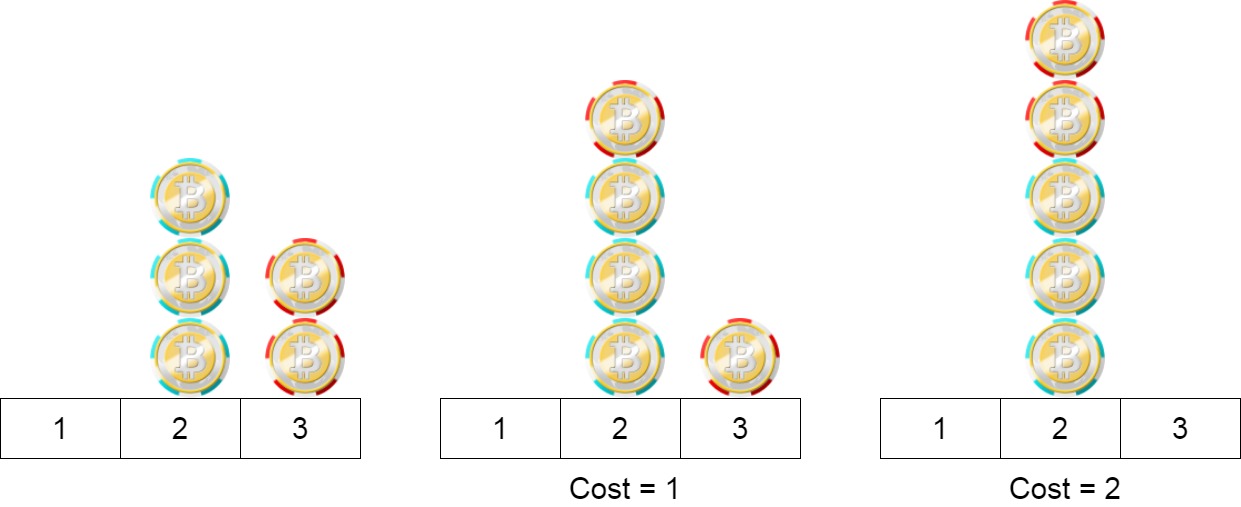
Problem
We have n chips, where the position of the ith chip is position[i].
We need to move all the chips to the same position. In one step, we can change the position of the ith chip from position[i] to:
・ position[i] + 2 or position[i] - 2 with cost = 0. ・ position[i] + 1 or position[i] - 1 with cost = 1.Return the minimum cost needed to move all the chips to the same position.
Example 1:
Input: position = [1,2,3] Output: 1 Explanation: First step: Move the chip at position 3 to position 1 with cost = 0. Second step: Move the chip at position 2 to position 1 with cost = 1. Total cost is 1.Example 2:
Input: position = [2,2,2,3,3] Output: 2 Explanation: We can move the two chips at position 3 to position 2. Each move has cost = 1. The total cost = 2.Example 3:
Input: position = [1,1000000000] Output: 1Constraints:
・ 1 <= position.length <= 100 ・ 1 <= position[i] <= 10⁹
Idea
동전을 한 곳으로 모으는 최소 비용이 얼마인지 구하는 문제다.
위치가 2가 차이나는 곳으로 동전을 이동하면 비용이 들지 않지만, 1이 차이나면 비용이 1이 든다. 즉 같은 홀수이거나 짝수인 위치의 동전들을 한 곳에 모으는 건 비용이 들지 않는다. 인접한 홀수와 짝수로 동전을 모은 뒤, 더 적은 수의 동전을 홀수나 짝수로 이동시키면 최소의 비용이 발생한다. 즉, 짝수에 위치한 동전이 더 많다면 홀수에 위치한 동전의 개수를 리턴하고, 홀수에 위치한 동전이 더 많다면 짝수에 위치한 동전의 개수를 리턴하면 된다.
Solution
class Solution {
public int minCostToMoveChips(int[] position) {
int odd = 0;
int even = 0;
for (int i : position) {
if (i % 2 == 0) {
even++;
continue;
}
odd++;
}
return even > odd ? odd : even;
}
}Reference
https://leetcode.com/problems/minimum-cost-to-move-chips-to-the-same-position/


